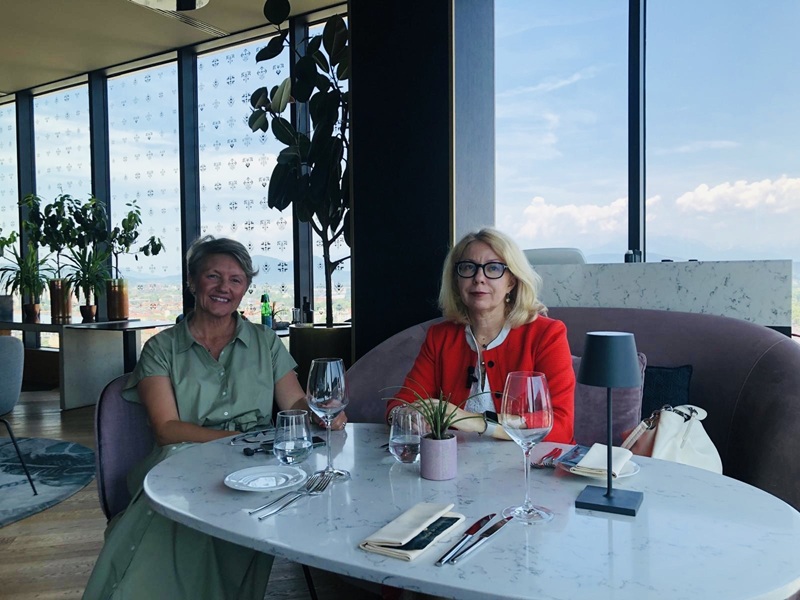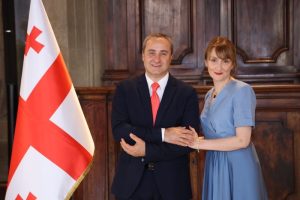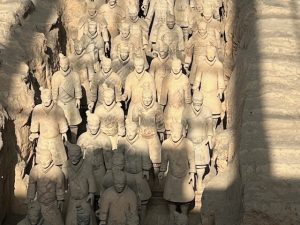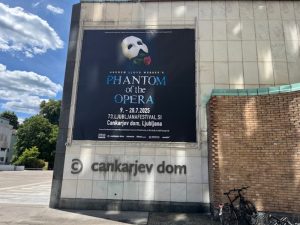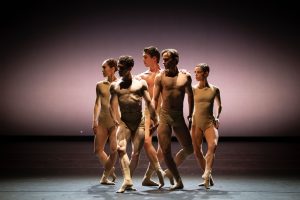Interview with H.E. Mrs. Lina Rukštelienė, Ambassador of Lithuania to Slovenia
As part of Internationalis’ Learning about Other Cultures and People series, we had the distinct pleasure of speaking with H.E. Mrs. Lina Rukštelienė, Ambassador of Lithuania to Slovenia. Warm, insightful, and deeply dedicated to her work, Ambassador Rukštelienė offered us a personal and thoughtful look at her diplomatic mission, her love for languages, history, and music, and the strong cultural ties that connect Lithuania with Slovenia and the wider world.
Although a non-resident ambassador based in Vienna, she has been covering Slovenia since February 2023, when she presented her credentials to President Nataša Pirc Musar. Her role also spans Austria, Slovakia, and Liechtenstein—an impressive scope for a diplomat working with a small team.
“It’s really about planning,” she says with a smile. “Because if I’m here today, my thoughts are already in September or October. You’re never quite in the present moment—you’re always preparing for what’s next.”
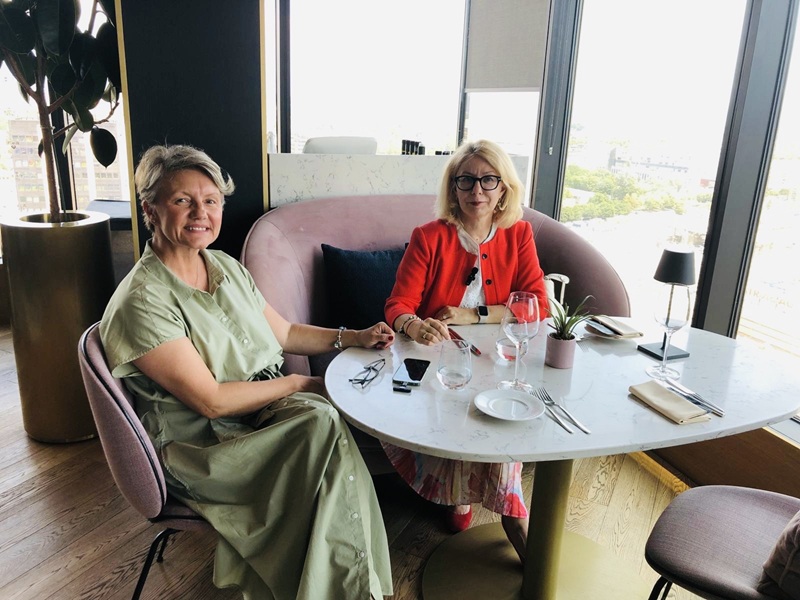
On Ljubljana and Her Diplomatic Visits
Despite her busy agenda, Ambassador Rukštelienė speaks fondly of Ljubljana:
“Ljubljana always reminds me a little bit of Vilnius,” she tells us. “It’s a beautiful, medieval city with a castle on a hill, friendly people, and vibrant outdoor cafés. There’s a real sense of life being enjoyed here.”
While her visits are mostly official—meeting colleagues at Slovenia’s Ministry of Foreign Affairs and other ministries—she always takes joy in being back.
Celebrating Lithuanian Culture in Slovenia
Her most recent visit was centred around a special cultural event organized at the University of Ljubljana—a commemorative concert celebrating the 150th anniversary of Lithuanian composer, painter, and writer Mikalojus Konstantinas Čiurlionis.
“He’s one of our national treasures,” says the ambassador. “He painted what he played, and he played what he painted. His art is a true fusion of disciplines, deeply emotional and beautifully symbolic.”
Slovenian pianist and honorary consul of Lithuania in Slovenia, Nevenka Leban-Orešič, co-organized the event and performed Čiurlionis’s works. The ambassador speaks of Ms. Leban-Orešič with deep appreciation:
“She’s been our honorary consul for 12 years and is an exceptional musician. She knows Čiurlionis’s work better than most Lithuanians—and that’s saying something!”
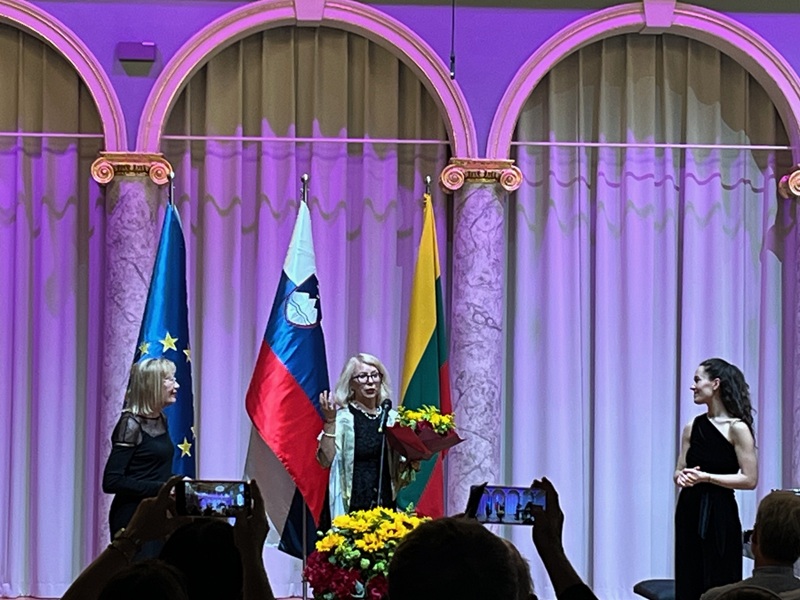

Lithuanian Language: An Ancient Treasure
When asked about the Lithuanian language, Ambassador Rukštelienė lights up.
“It’s one of the oldest living Indo-European languages,” she explains. “Together with Latvian, it forms the Baltic language group—there used to be a third, Old Prussian, but it disappeared in the 17th century.”
For Lithuanians, language is more than communication—it’s survival. She recalls the long years of Russian and Soviet occupations, when the Lithuanian language was banned and suppressed, when occupiers tried to replace it with the Russian language:
“It was the mothers who kept it alive in XIX century,” she says. “They taught their children in secret—how to read, how to write, how to speak. It helped us preserve our identity in the XX century and, ultimately, establish the independent state.”
Even today, Lithuanian communities abroad—including those in Austria—organize weekend schools where children learn the language, songs, and traditions.
Lithuania Today: Innovation, Resilience, and EU Integration
Celebrating 21 years of EU membership, Lithuania remains one of the most enthusiastic EU nations, with more than 85% public support.
“Joining the EU helped us modernize our economy and improve our living standards dramatically,” says the ambassador. “We’re now above the EU average in several indicators—and there’s a strong hunger for success among our people.”
Lithuania’s startup scene is booming, with notable successes like Vinted, a second-hand online marketplace, Revolut, a fintech platform, and NordVPN cybersecurity software. The ambassador credits state support, tax incentives, and a generation of returnees bringing new ideas home.
Cultural Heritage: From Amber Jewellery to Midsummer Magic
Lithuania’s traditional crafts remain central to its identity—especially amber jewellery.
“Amber is our gold,” says Ambassador Rukštelienė. “It’s been part of Baltic life for thousands of years. We still wear it with pride, and tourists love it too.”
She also describes the country’s rich traditions around Joninės (Midsummer Night), rooted in Lithuania’s pagan past:
“We were the last pagans in Europe,” she notes. “Even today, we still have a deep connection to nature. On Midsummer night, young couples go into the forest searching for the mythical flower of the fern—a symbol of love and luck.”
Connecting Lithuania and Slovenia
While the Lithuanian community in Slovenia is small, cultural and academic exchanges are ongoing, especially through the Erasmus+ program. The ambassador believes there’s potential for even more cooperation in tourism, education, and business.
“Nature is something we both love. Slovenia has mountains; we have forests and lakes. We don’t have rocky beaches, but we do have soft sand and big waves,” she says with a laugh. “We both treasure our landscapes.”
Looking Ahead
Ambassador Rukštelienė continues to build connections across the region while planning future diplomatic visits—including the upcoming Bled Strategic Forum this September, on which Slovenia can expect the visit and participation of the Minister of Foreign Affairs of Lithuania Kęstutis Budrys.
Whether discussing security, cultural exchange, or EU affairs, H.E. Ambassador Rukštelienė brings with her a deep sense of purpose and pride.
“Language, culture, and people—that’s what diplomacy is really about,” she says. “They’re the soul of a country.”

